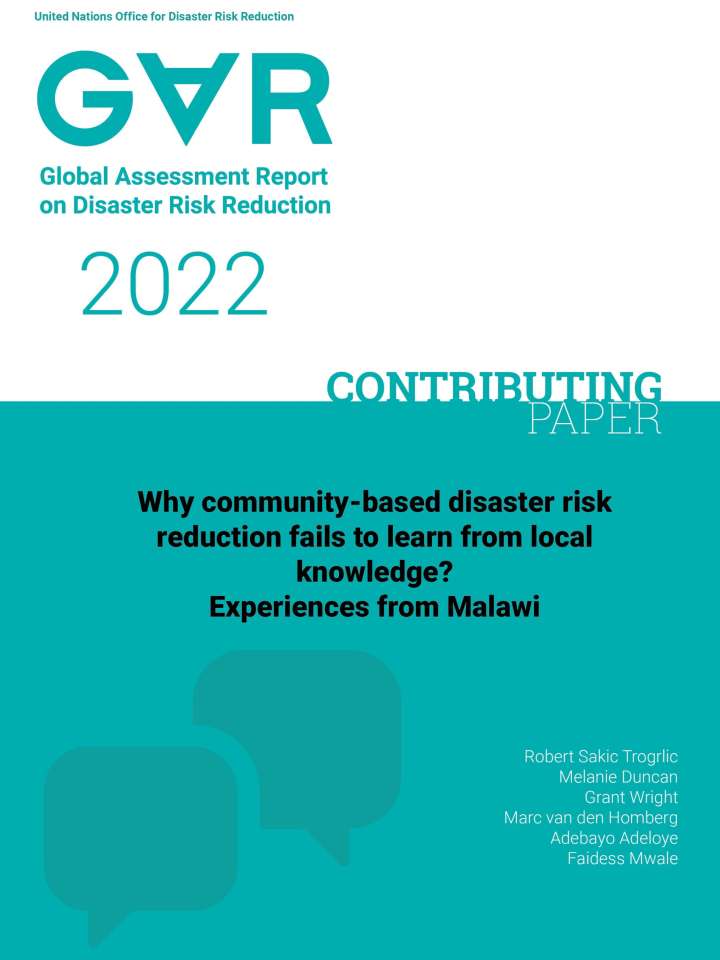Why community-based disaster risk reduction fails to learn from local knowledge? Experiences from Malawi
This contributing paper aims to investigate the extent to which community-based disaster risk reduction (CBDRR) in practice really takes into account local knowledge (LK). It is often taken as given that CBDRR serves as a mechanism for the inclusion of local knowledge (LK) in disaster risk reduction (DRR). But the reality from the ground suggests that this increased attention does not result in practical inclusion of communities nor their LK in DRR. Through in-depth empirical qualitative data from Malawi, the paper explores the dynamics between the inadequate inclusion of LK and approaches to DRR.
This study argues that LK is underutilised in CBDRR and finds that current practice provides a limited opportunity for the inclusion of LK, due to five prime obstacles: i) current approach to community participation, ii) financial constraints and capacity of external stakeholders, iii) the donor landscape, iv) information consolidation and sharing, and v) external stakeholders attitudes towards LK. In CBDRR, a strong dichotomy between local and scientific knowledge is maintained, and further re-examination of community-based approaches in practice is needed to make them truly transformative.
